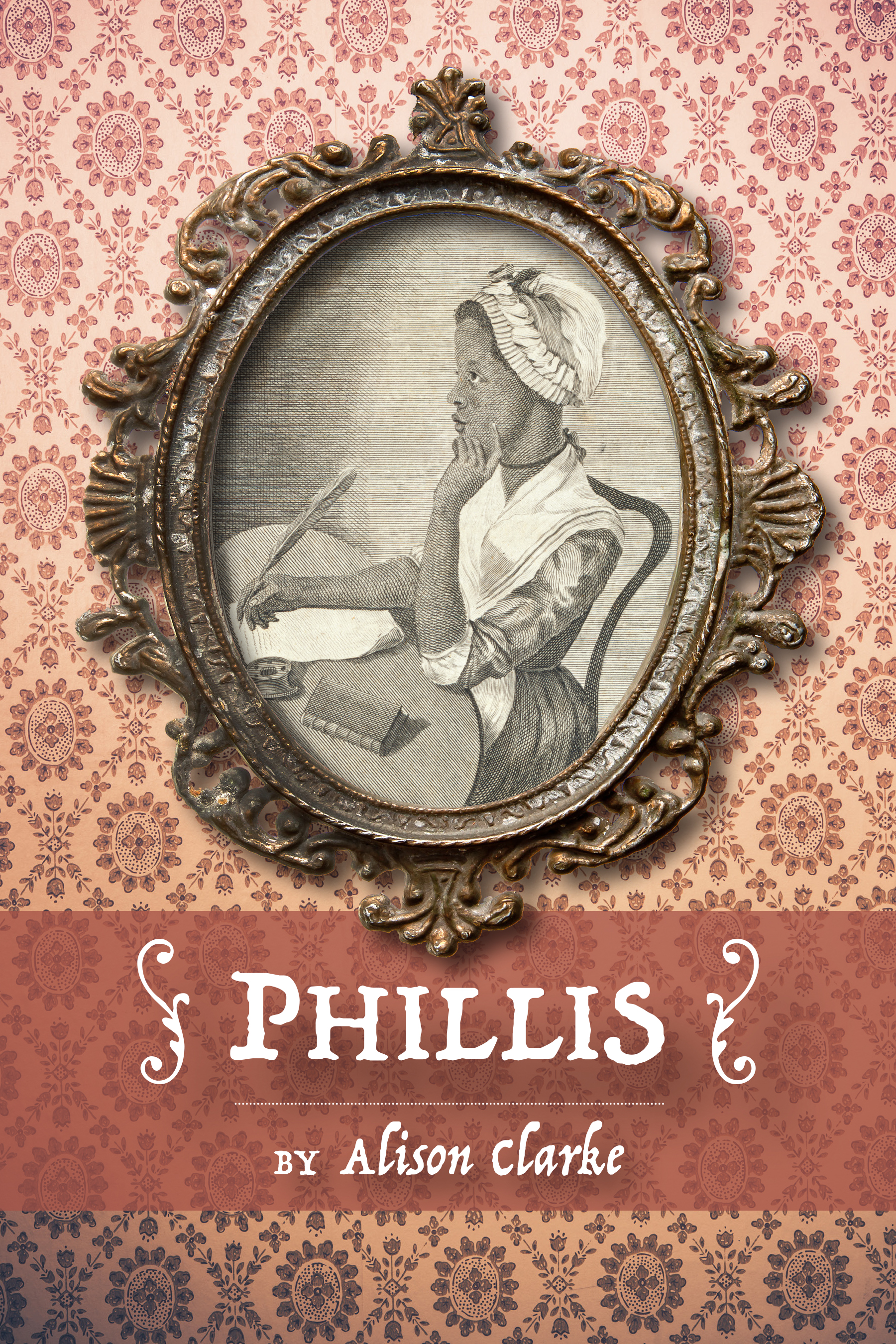
Phillis
Alison Clarke
$18.99 CAD / $18.99 USD (T)
160 pages
6 x 9 inches
Paperback: 978-1-77385-135-8
Epub: 978-1-77385-137-2
Mobi: 978-1-77385-138-9
Library PDF: 978-1-77385-136-5
October 2020
These poems reach through time to tell the remarkable story of Phillis Wheatley, the first African-American woman to publish a book of poetry, and who did so while she was enslaved.
Phillis Wheatley was the first African American to publish a book of poetry. In 1773, her book, Poems on Various Subjects, Religious and Moral, was published to international acclaim. Wheatley was presented In London as “the African genius,” and her writing was published in New England and England alike. Phillis Wheatley’s name was known in households throughout literate North America. Yet Phillis Wheatley was a slave.
In Phillis, Alison Clarke reaches through time to tell the story of this remarkable woman. Through a series of poems and prose-poems, Clarke presents Wheatley’s world with depth and liveliness, reimagining the past for a modern audience while bringing sensibility and passion to the story of Wheatley’s life. Wheatley’s story is told in first-person poetry that illuminates significant chapters of her life, capturing the brilliant heights of her writing career along with the inevitable, brutal injustices she faced as an enslaved Black person in North America.
Interspersed with poems written from the viewpoint of Black intellectuals, entrepreneurs, and other people who themselves were inspired by Wheatley, this is a collection of poetry that celebrates the resilience and accomplishments of Black history.
Alison Clarke is a writer and artist. She is the author of The Sisterhood Series, and winner of the Diversity Magazine Award for Writer of the Year and Book of the Year. Alison teaches creative writing and visual arts, and holds a Master’s degree in Children’s Literature from Hollins University.
Phillis is a testament to the power of literature, particularly poetry . . . as a medium capable of containing the multitudes of history waiting to be written into being.
—Margaryta Golovchenko, ANMLY
Clarke gives Phillis Wheatley a voice that sings, in how she gives us a sense of her life before slavery, during, and after . . . You’re gathered into her life, and you feel blessed because of it. That Alison Clarke has done this so very artfully, and with such detailed scholarship and research, is a brilliant thing.
—Kim Fahner, periodicities
Phillis is intensely packed with ideas . . . [an] engrossing deep dive into the iconic poet’s life.
—Tom Murray, Edmonton Journal
By placing herself inside Phillis Wheatley, Alison Clarke writes an ode to freedom. The eighteenth and twenty-first-century poets are intertwined, and the past and present illuminate each other. Phillis’ suppressed anger at being ripped from her homeland and family is expressed in powerful language.
—Adriana A. Davies, historian and poet
To read Alison Clarke’s Phillis is to witness the emergence of a necessary voice for our time. This poetic homage to Phillis Wheatly descends into the depths of unimaginable suffering, then flies into the ethereal plane, and again down into the deepest gashes and clashes caused by systemic discrimination. In the gap, we not only come face to face with unbearable despair and loss, but also with a history that highlights the strength of the human spirit as seen through the work of those who had vision, thus nevertheless persisted, and continue to persist in doing what has to be done.
—Pierrette Requier, bilingual poet, playwright, and mentor
Phillis is a book that demonstrates how a short, brave life can influence others who in turn influence others to acts of courage in the appallingly long journey for Black freedom and justice in the world today.
—Joan Crate, poet and author of the novel Black Apple
Alison Clarke’s stunning poetry collection conceives of a Phillis Wheatley who, though she wrote nothing of her life before her passage across the Atlantic, remembers the past from which she was kidnapped. Clarke’s great achievement is to center not the testing of Wheatley’s genius as a poet, but her own self-understanding as a griot and her relationships with kin past, contemporary, and future. The result is a collection that imagines realities evacuated from previous accounts of Wheatly’s life and work. In doing so, Clarke pieces together what may have been from what remains in archives that, by their nature, are anti-Black in their occlusion or reduction of Black life in its fullness. With this collection, Clarke joins critical fabulists such as Afua Cooper and Saidiya Hartman.
—Teresa Zackodnik, Professor, Department of English and Film Studies University of Alberta
Author Award: National Black Coalition of Canada - Edmonton, Fil Fraser Award for the Literary, Performing, and Visual Arts | 2020